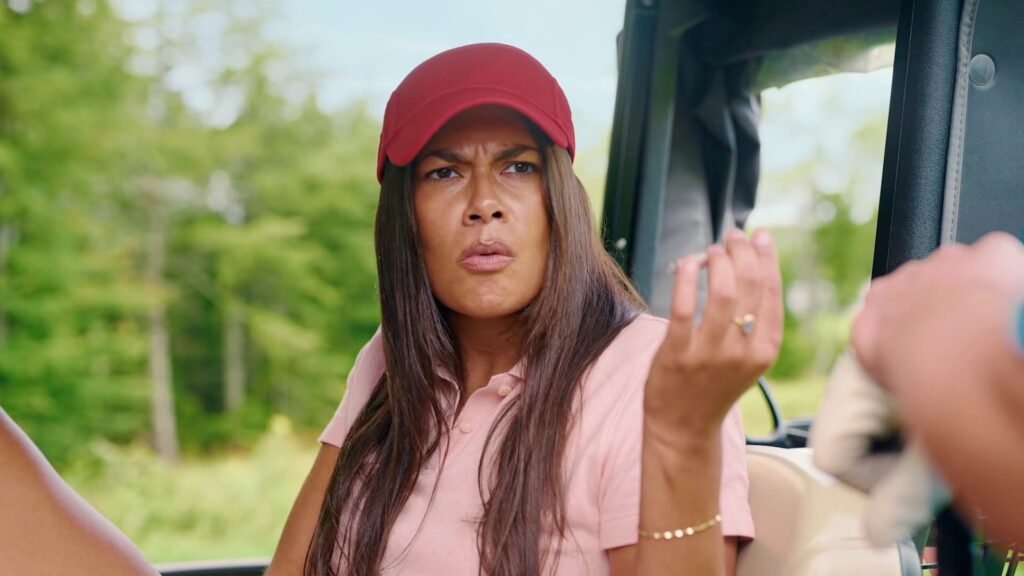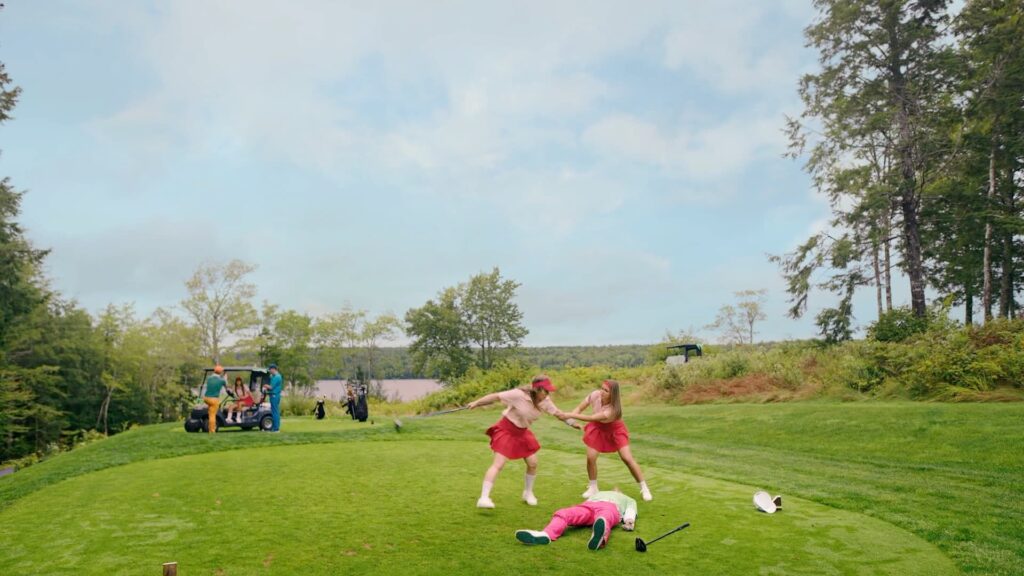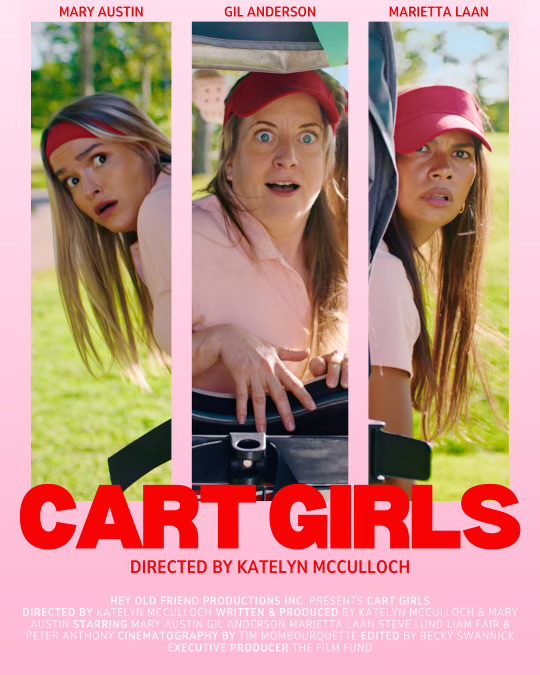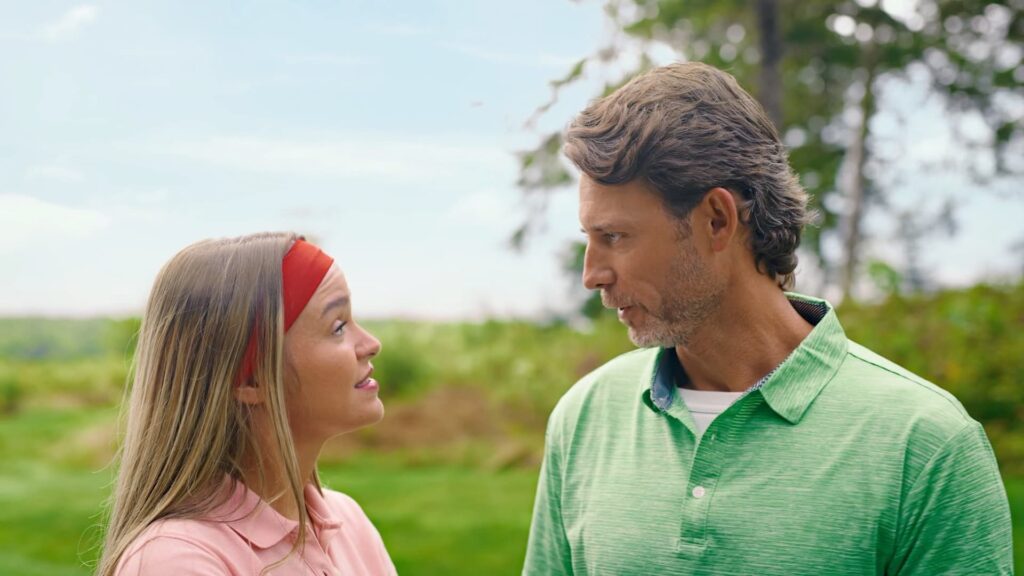Behind the Pitch: Katelyn McCulloch
For this month’s Behind the Pitch, The Film Fund founder Thomas Verdi sits down with filmmaker Katelyn McCulloch to discuss her background in film, the circus, and her Film Fund-winning short, “Cart Girls.”
Thomas Verdi: Can you tell us a little about yourself and your background in filmmaking?
Katelyn McCulloch: I began my career in theater and circus arts, primarily as an actor. I did some on-camera acting, but I was always directing and writing in the live performance space. Then, in 2020, this little thing called the pandemic happened—you might remember it. That’s when I finally had the time and space to dig into writing scripts for film and TV. That’s where it all started. I made my first short film, a mother-daughter golf comedy called Mulligan, which I jokingly call the little sister to Cart Girls, the film I was so lucky to receive Film Fund support for. That’s where my passion for filmmaking really took off.
I’ve always had a huge imagination, and pursuing stand-up, circus, and performance art was my way of capturing that. But once I found film, I knew it was the space I was meant to be in. Plus, I have a ton of energy and love a 15-hour workday. I live and breathe whatever I’m working on, and that energy lends itself so well to being a filmmaker.
Thomas Verdi: Awesome. How did you first hear about the Film Fund?
Hey Old Friend Productions: I met Tom at Dances With Films in 2022.
Thomas Verdi: Yeah, I think it was 2022. I’m so bad with time.
Katelyn McCulloch: Me too! I’m like, where am I? But yeah, December 2022 at the film festival. I met you, saw your film, and started following The Film Fund. When I had the right project, I applied.
Thomas Verdi: Love that. You mentioned Cart Girls. What is Cart Girls about, and what inspired the idea?

Katelyn McCulloch: Cart Girls is about three female beer cart girls who accidentally murder—spoiler alert—a golfer. It’s a broad comedy with three female leads, exploring the power dynamics on a golf course. We’re taking this male-dominated space, like golf, and flipping it on its head with a female lens, looking at the dynamics between cart girls and golfers. The girls ultimately take their power back, but they go a little too far. The dummy we used in the film—best $500 I’ve ever spent—cracks me up every time. It’s just floating down the river.
Thomas Verdi: I don’t want to spoil too much, but that dummy floating down the river kills me every time I watch it.
Katelyn McCulloch: We lost that dummy down the river—it was never recovered! That’s the joy of indie filmmaking.
Thomas Verdi: So, somebody’s got it propped up at their dinner table as a hot date.
Katelyn McCulloch: Absolutely!
Thomas Verdi: Speaking of the Film Fund, how did it help you bring your project to life?
Katelyn McCulloch: We had already shot Cart Girls when I applied for The Film Fund, and we were in the final stages where many filmmakers realize they need more money than expected, especially for festival submissions and post-production. The Film Fund saved the day for us. In indie filmmaking, you’re submitting to festivals, trying to figure out where your movie fits. You have to throw a lot of spaghetti at the wall to see what sticks before carving out your festival path. You’ve got your dream festivals, your long shots, and your strategic ones. The funding helped with those submissions and finishing post-production, including creating a bangin’ little theme song for the movie and wrapping up editing.

Thomas Verdi: What challenges did you face during the creation of your project, and how did you overcome them?
Katelyn McCulloch: This project was a labor of love. Everyone volunteered their time to make something ambitious. We were on a golf course with the main three gals, three guys, and a bunch of background artists—big for a small film. The biggest challenge was filming on a golf course. They shut down parts of it for us, which was possible because I know the owner. But we were dealing with lots of people and golf balls flying everywhere. We were far from the set at times, with crew members racing between the clubhouse and the 18th green to save the day.
We didn’t have enough walkie-talkies, and there was no phone service in certain spots, so coordination was tough. But I wouldn’t say we faced any challenges I didn’t think we could overcome. I had an incredible team, all passionate about the project. It was mayhem, but the best team ever made it happen.
Thomas Verdi: Love that. What impact has the project had since its completion? Screenings, awards, audience reactions?
Katelyn McCulloch: We won Best Comedy at the Great Canadian Comedy Film Festival, and we also screened at Dances With Films, among others. I’m blanking on the full list. We had a great festival run and got some interest in expanding the project, possibly as a TV show or feature film. It’s a fun world to explore. As a director and writer, this project let me push the edges of my directing style. As a woman in comedy, I sometimes feel pressure to make my work meaningful or teach a lesson, but with Cart Girls, I just wanted to make it funny and enjoyable for 14 minutes. The audience response showed I achieved that. It’s now a great piece to showcase my voice, passion, and the tone and style of my future projects.
Thomas Verdi: Speaking of new people, you’re now represented by Three Arts in the States. How did that happen, and is there any connection to Cart Girls?

Katelyn McCulloch: I’m Canadian, in case that wasn’t clear, and I love making work here and connecting with filmmakers worldwide, like you. I applied for a program helping Canadian comedians break into the U.S. I didn’t get it—I was a total underdog—but one of the jurors passed my portfolio to Three Arts. Out of the blue, in Nova Scotia, I got an email from them wanting to meet. They loved Cart Girls, my series Everybody’s Mag, and my short film Mulligan, along with my writing samples. That package—my shorts, short-form series, and creative growth—sealed the deal. It was so exciting and unexpected, a reminder that as filmmakers, you never know where your work will land or who it will resonate with. If you keep pursuing your voice and sharing your work globally, you never know what magic might happen.
Thomas Verdi: You touched on this, but what advice do you have for filmmakers, either in general or for entering The Film Fund contest specifically?
Katelyn McCulloch: My biggest advice, as cheesy as it sounds, is to focus on your authentic voice. This industry is noisy, especially with social media and comparisons. What makes you unique is you—nobody else can be you. When making a short film, lean into what you want to say and see on screen. For Cart Girls, it’s a straight-up comedy meant to entertain. Some might think it’s too commercial—who cares? Make what you love. Chasing the market or what’s trending will always fail because you can’t predict it. Write and make what’s interesting to you, and trust it will find the right audience.
Thomas Verdi: I totally agree. If you try to mold something for the market, it won’t feel genuine, and it’ll show. It’ll end up like most of the forgettable stuff on streaming services. At The Film Fund, we don’t track what’s hot at Sundance. We look for good stories we want to fund. Speaking of, what’s your best tip for crafting an effective one-sentence pitch?
Katelyn McCulloch: Read The Film Fund website—it’s all there! It sounds silly, but creatives sometimes skip the fine print. I read it and crafted something succinct, simple, and true to my voice. Since Cart Girls is a funny movie, I wanted the pitch to be funny, charming the decision-makers while showing how we’d use the money. Make it uniquely you, and trust that it’ll reflect what’s on screen.
Thomas Verdi: Exactly. We want a glimpse into the project’s world in that one sentence. Our newsletter and blog posts highlight what makes a winning sentence—specific words that show personality and producibility. Creativity loves restraint.
Katelyn McCulloch: Absolutely. It’s a great exercise in being as creative as possible in one sentence. Short films are like that—trying to cram a feature into 10 minutes often falls flat. Trust the specificity and your voice to create something unique.

Thomas Verdi: 100%. You mentioned the shows you’re working on. What are your next steps in your filmmaking career?
Katelyn McCulloch: We just wrapped Season 2 of Everybody’s Mag, a short-form series on Bell Fibe TV1, now available in the States on JustWatchMe, which I’m announcing next week. We’re in post-production for that. I’m also gearing up for bigger pitches and developing a new project with a company. Right now, I’m focusing on writing, not pausing production entirely but returning to the drawing board. After Cart Girls—my fourth short—and Everybody’s Mag, I feel ready to grow in the longer-form space. I’m writing a new feature and honing my voice, which is nerve-wracking because production feels so satisfying. The next six months are about getting my work out to larger markets.
Thomas Verdi: You mentioned Bell Fibe and JustWatchMe. Where else can people watch your work?
Katelyn McCulloch: You can see two of my short films, I Don’t and Me Writes a Reference Letter, on CBC Gem. As an actor, I’m in other projects, but those are the main ones for my filmmaking.
Thomas Verdi: What’s the best way for people to follow you? Do you have an Instagram, website, or social media?
Katelyn McCulloch: My personal Instagram is @mccullochk, where you’ll see my range of projects. My company’s account is @heyoldfriend, where you can follow updates on my short films, Everybody’s Mag, and larger projects.
Thomas Verdi: For our reflective and closing questions, what’s the most valuable lesson you’ve learned from your experience with The Film Fund?
Hey Old Friend Productions: As a filmmaker, especially in short films, funding is scarce. In Canada, we’re lucky to have government funding, but there aren’t many programs for shorts. The Film Fund taught me the importance of seeking new partnerships and being brave enough to ask for help. Submitting to The Film Fund felt like a long shot, but putting yourself out there can lead to unexpected opportunities.
Thomas Verdi: We believe in that too. My email, tom@thefilmfund.co, is open—I check it daily. If someone asks, “What makes a good pitch sentence?” I’ll share tips on what we look for. We can’t write the pitch for you, but we’ll guide you. As a final question, is there anything else you’d like to share with the community or aspiring filmmakers?

Katelyn McCulloch: Make movies, be weird, and support each other’s films. There are so many ways to watch shorts—streaming platforms, Vimeo, etc. We often get stuck in our own silos, but there’s a whole community out there. Reach out, like each other’s posts on Instagram, watch and compliment each other’s work. Tell filmmakers what you love about their films, even if it’s just one scene. It’s easy to criticize, but uplifting each other builds stronger communities. We’re not alone—it’s too scary out there by yourself.
Thomas Verdi: You can’t make a film by yourself. Well, you can, but it’s hard, boring, and probably won’t be great.